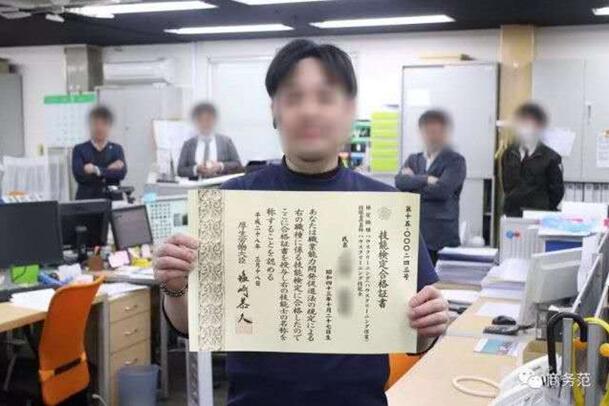


(Summary description)
(Summary description)
For students studying in Japan, first of all, their academic qualifications and grades will be their most important tasks, but for those who want to work in Japan in the future, the Japanese qualification exam is also a very important direction. If you have both an academic qualification and a qualification certificate, it is like adding strength to the tiger. The future development space will be even wider.

The professional qualification system is also called "qualification system". The system established by the Japanese government to prove that people engaged in a certain profession have certain specialized abilities, knowledge, and skills, and to improve their prestige. To obtain a vocational qualification, Japanese people need to have a certain academic qualification and take a qualification test. The relationship between various vocational qualifications and academic qualifications is very finely divided. For example, high school graduates can obtain qualifications such as child instructors and waterway technology administrators; graduates from specialized schools and various schools can obtain qualifications such as cooks and nurses; short-term university graduates Qualifications such as teachers and food hygiene administrators can be obtained; university graduates can obtain qualifications such as teachers and persons in charge of social education.
Because these standards and requirements are very specific, they constitute the following characteristics of the Japanese vocational qualification system:
1. Legislative characteristics. There are certain requirements and operating procedures for the requirements and assessment methods of each type of occupational work, which reflects the regulation, standardization, scientification and rationalization.
Second, the characteristics of lifelong education. Vocational training and obtaining professional qualification certificates have inherent factors for continuing education. The Japanese vocational qualification system also embodies the principle of "equal education", respects the individual characteristics of each person's development, and can be selected for the exam and open to all citizens. Examination categories are complete, there are many levels, the content of the project is wide, and it is integrated with the popularization and improvement of knowledge and technical skills. It comes down to the basic point of improving the quality of the people.
3. Characteristics of effectiveness. Japan’s vocational qualification system closely adapts to the development and changes of the country’s social economy and people’s needs, constantly undergoing reforms and adjustments to enhance its practicality and effectiveness, and it has a strong vitality.

The qualification examination is mainly carried out by the following institutions:
(1) National administrative agencies such as the personnel institute;
(2) Metropolitan, provincial, prefecture, and county local governments;
(3) A group designated by the country or the capital, province, prefecture, or county.
As long as you pass the exam, you can get the qualifications required for professional work such as doctors, lawyers or civil servants, and certain jobs that require special skills or skills as recognized by the state, such as information processing technology.
This approach not only enables business operators and laborers to grasp and acquire the necessary and complete knowledge system, but also can objectively grasp and understand their professional abilities, and is also conducive to the rational deployment of talents to promote the development and efficiency of work.
Scan the QR code to read on your phone
Mobile site

The Official Account
